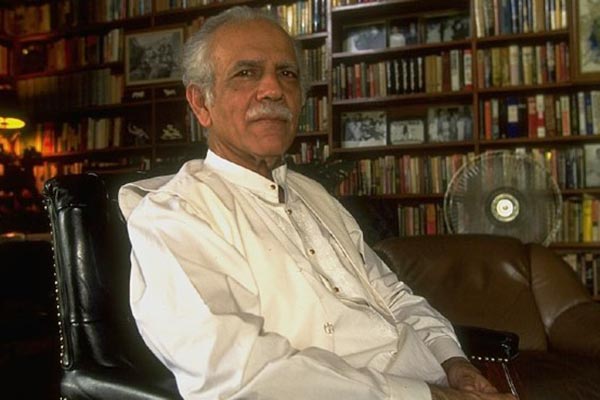
File photo
The memoirs of the recently deceased Baloch leader contain lessons that still resonate in Pakistan today
The history of Baloch disaffection in Pakistan is quite old and at times disputed. Perhaps the most credible testimony to what actually happened in the past is to be found in the memoirs of Sherbaz Khan Mazari, who died last month at the age of 90.
Among the most intellectually attractive of the Baloch leaders, his gift as a clear-thinking writer was abundantly clear in his memoirs, A Journey to Disillusionment (OUP 1999), which established him as an authority on the Baloch phenomenon. His passing, thus, marks an occasion for Pakistan to recall his life, and think again about Balochistan as the largest geographic unit of Pakistan.
More so than any other writer, Mazari was able to throw more light on the subject of the “system of honor” among Baloch sardars, and the error it frequently causes in their political judgment, indirectly helping us understand why their bent of mind is incompatible with the federal state and democracy. His account also further strengthens the view expressed by some writers on Balochistan that in case Baloch separatism succeeds, the new Baloch state would be as fissiparous and divided as the state of Pakistan after its separatism succeeded in India in 1947. His version of what happened in Balochistan after 1947 is objective enough to be reliable to someone who wants to judge the current situation without bias.
According to Mazari, the Khan of Kalat had a treaty with Britain on the model of what India had with Nepal. The Khan was first in favor of joining Pakistan and even invited Jinnah to Kalat in 1946, but after hearing from a British constitutional legal adviser (Sir Harry Moncton) that Kalat could not be automatically merged into Pakistan, he thought of independence. He was encouraged by the Baloch of Marri-Bugti and DG Khan area, who also thought that their land was not a part of Pakistan.
Aware of the intentions of the Khan, the government in Karachi set about weaning his Baloch supporters away from him. It got the minor principalities of Makran, Kharan and Las Bela to accede to Pakistan. (Adeel Khan writes that on the relevance of the Nepal precedent, the Khan was also backed by his legal adviser, Jinnah himself. Khan of Kalat declared independence on Aug. 15, 1947, still offering defense, foreign affairs and communications to the federation, but Balochistan was annexed 9 months later with the help of the Army.)
The Khan reluctantly joined Pakistan and was made Khan-e-Azam and head of the Balochistan States Union, but his younger brother rebelled and was suppressed in 1948. Then came One Unit in 1955, which found the Khan of Kalat planning a linguistic province made out of the Baloch of Balochistan, Sindh and DG Khan. In 1957 the Pakistan Army besieged Kalat and arrested the Khan (Mir Ahmad Yar Khan) on charges of conspiracy of secession.
Mazari was learned beyond the straits of provincialism. He worked with Pakistan Peoples Party founder Zulfikar Ali Bhutto and others in the National Assembly to draft the Constitution that was passed in 1973. It represented a new beginning for a country that was traumatized by the debacle of 1971. From 1975 to 1977, Mazari was a vocal member of the opposition in the National Assembly and played an active role in the Movement for the Restoration of Democracy. The Army returned to power in 1977 and began to handpick politicians that would serve as its puppets in the decade that followed.
Baloch separatism, overtly honor-based, has also become resource-based in pattern with other examples of separatism based on natural and financial resources. The concept of honor among the Baloch elite effected Pakistani politics; Baloch nationalism is partially separatist in our day because of the new global realization of the importance of a higher measure of autonomy to provinces.
But the sardars are deeply divided. The rejectionist sardars are also the chiefs of the major Baloch tribes. Their profile is much larger than the other tribal chiefs, who tend not to agree with them or have been alienated by their authoritarian behavior. Problems of equality before law, weakness of the writ of the state and gradation of tribal honor have kept the divisions simmering over time. Away from the nawabs, the Baloch common man is in rebellion against the state and its rebellious nobles, and often take advantage of a porous Durand Line to operate from neighboring Iran and Afghanistan, both.
The accuracy of Mazari’s views are visible even today, as expressed most recently by a book penned by an Irish journalist with extensive experience reporting in Pakistan. Declan Walsh writes in The Nine Lives of Pakistan (2020): “In theory, Balochistan should be Pakistan’s richest province. Beneath its baked soil lie vast deposits of gold, copper, iron and uranium. Yet little of that wealth has been exploited, and most Baloch live in abject poverty. Half of the population draws its drinking water from a well; education rates are atrocious; and dilapidated hospitals mean that a Baloch woman is twice as likely as another Pakistani woman to die in childbirth. Baloch nationalists blame this woeful state on the Army, specifically the Punjabi generals they accuse of seeking to steal their mineral wealth.”
